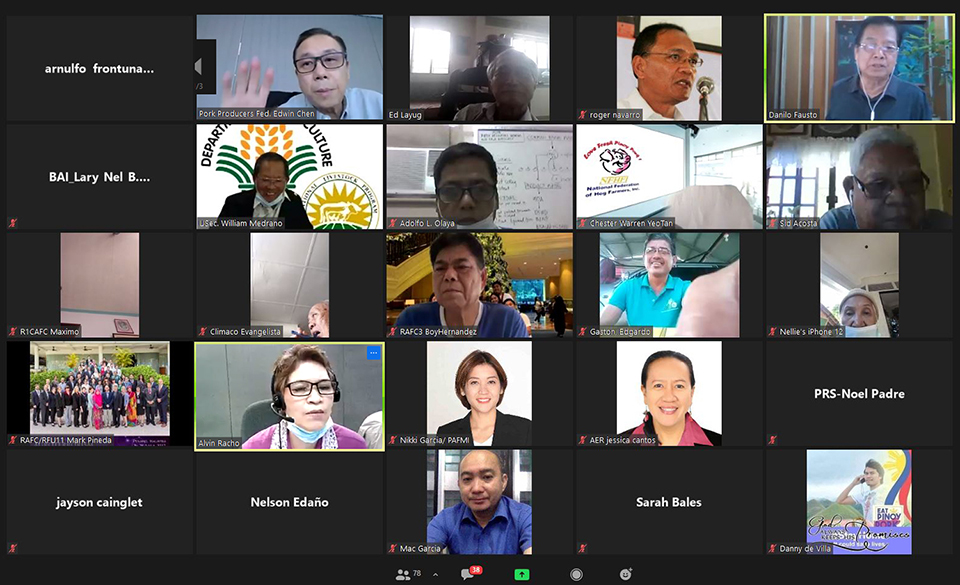
The Philippine Council for Agriculture and Fisheries (PCAF) conducted a virtual consultation on the proposed tariff modification on rice and pork importation on February 2, 2021, to gather inputs, suggestions, and reactions from the private stakeholder partners on the tariff adjustment proposal that the Department of Agriculture (DA) submitted to the tariff commission.
During the consultation, DA Director for Policy Research Service Noel Padre presented the proposed tariff adjustments on pork and rice that were submitted to the tariff commission. He emphasized that the lowering of the tariffs for the importation of rice and pork to fill up local demand is the last resort of DA and its main focus is to strengthen local production.
DA Undersecretary designate for Livestock Dr. William Medrano underscored that DA values the voice of the private stakeholder partners and that their comments and suggestions are heard and being brought up to the proper authorities.
“While we have to protect our producers, we also have to protect our consumers which is a balancing act. There is a need for us to meet halfway. We must also reduce the inflation brought about by the rising prices of food commodities,” he added.
Meanwhile, the private stakeholder partners from Rice and Pork endorsed two resolutions calling DA to withdraw its proposal on the reduction of the tariff on rice and pork. This is anchored on the statements from the participants that the shortage in the supply is not significant enough to call for the lowering of the imposed tariffs on rice and pork and tariff reduction would flood the market with low-priced imported meat which will eventually discourage the swine industry to invest more and expand its production.
A representative from the feed millers association also suggested for DA to look into lowering the tariffs of raw products used for feeds and other inputs instead of the end product to lower the input costs for hog growers. It was also mentioned that this move will encourage hog raisers to feed their hogs using high-quality feeds instead of swill feeding which is one of the causes of the spread of the African Swine Fever (ASF).
Hog growers also referred to the situationer data on supply and production presented by DA containing numbers from the Philippine Statistics Authority which shows that there is enough supply of pork in the country to meet its demands thus, increasing the Minimum Access Volume (MAV) for pork import may no longer be necessary.
Moreover, the private stakeholder partners said that the rising prices of pork is not solely due to the reduction in supply but also due to the disruptions in transporting them which is expected to normalize in the upcoming months due to the recent arrangements in easing the transport of goods especially agricultural and food commodities. ###CCB











